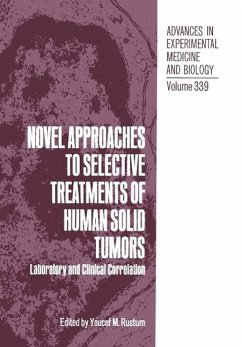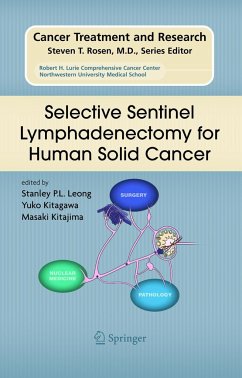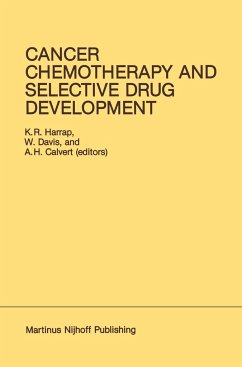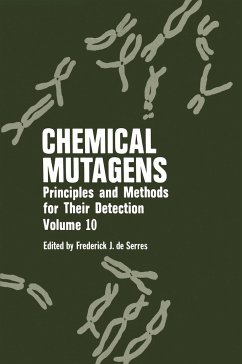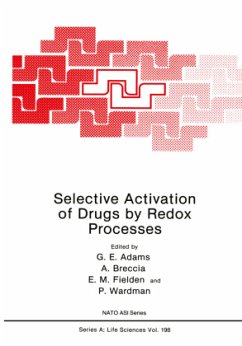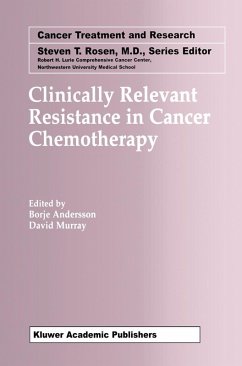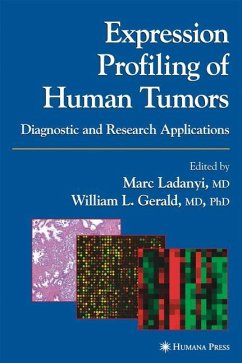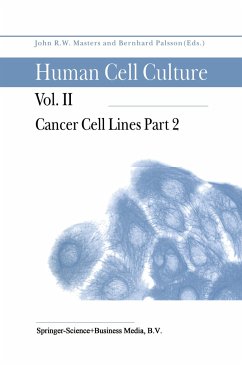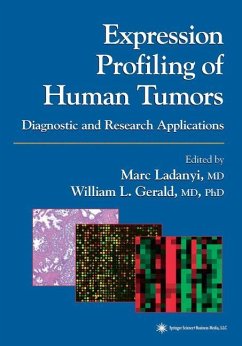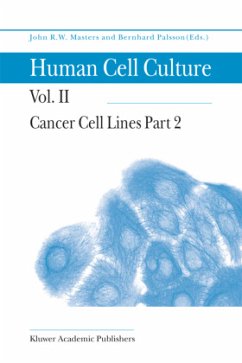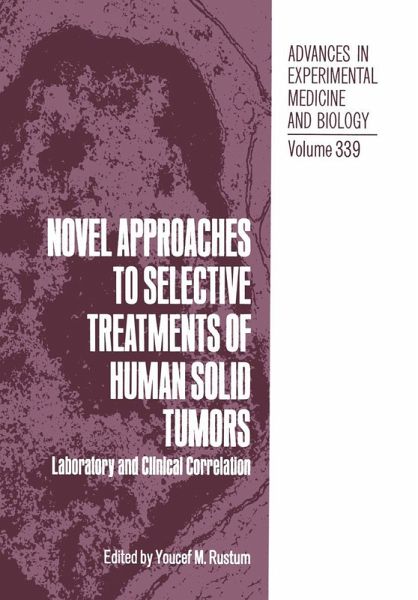
Novel Approaches to Selective Treatments of Human Solid Tumors
Laboratory and Clinical Correlation
Herausgegeben von Rustum, Youcef M.

PAYBACK Punkte
20 °P sammeln!
The therapeutic efficacy of FUra has been attributed to its incorporation into cellular RNA and, to its inhibition of thymidylate synthase, leading to potent inhibition of DNA synthesis and DNA damage. Studies of cell lines in vitro and model systems in vivo have demonstrated that although mechanisms of sensitivity and resistance to FUra are multifactorial, in the presence of citrovorum factor (LV, CF, 5-formyltetrahydrofolate) the site of action of FUr a becomes predominantly the pronounced and prolonged inhibition of thymidylate synthase. This action is the result of stabilization of the cov...
The therapeutic efficacy of FUra has been attributed to its incorporation into cellular RNA and, to its inhibition of thymidylate synthase, leading to potent inhibition of DNA synthesis and DNA damage. Studies of cell lines in vitro and model systems in vivo have demonstrated that although mechanisms of sensitivity and resistance to FUra are multifactorial, in the presence of citrovorum factor (LV, CF, 5-formyltetrahydrofolate) the site of action of FUr a becomes predominantly the pronounced and prolonged inhibition of thymidylate synthase. This action is the result of stabilization of the covalent ternary complex between FdUMP, an active metabolite of FUr a, 5,IO-methylenetetrahydrofolates, and thymidylate synthase. This effect of LV is thus an example of the concept of metabolic modulation. CF is commercially available as a racemic mixture of diastereoisomers (6R and 6S). The 6R isomer is considered to be biologically inactive; the 6S isomer is the biologically active form thatis metabolized intracellularly to' form the various folate cofactor pools including 5,IO-methylenetetrahydrofolates. Although the extent of metabolism of folates in normal and tumor tissues has not been clearly delineated, it has been determined that the formation of folypolyglutamates is primarily a function of schedule of CF administration, while the retention of significant concentrations of reduced folate is a function of the dose and also the schedule of LV. Thus, it appears that for optimal modulation of FUra activity several factors must be considered simultaneously.





